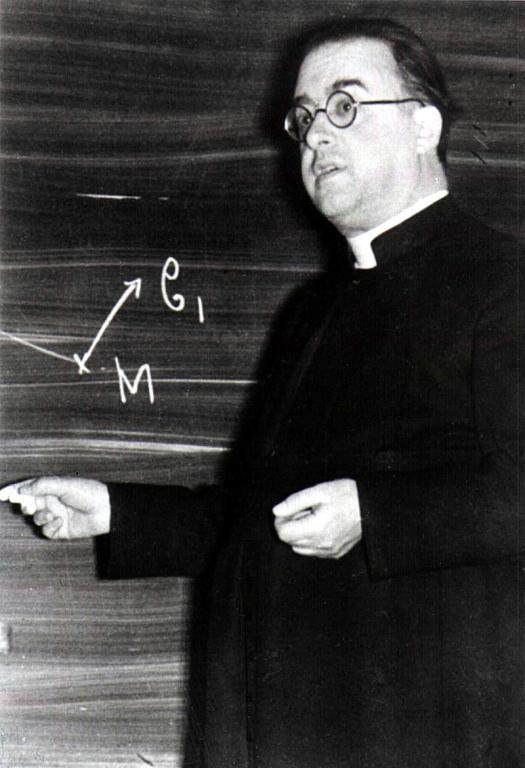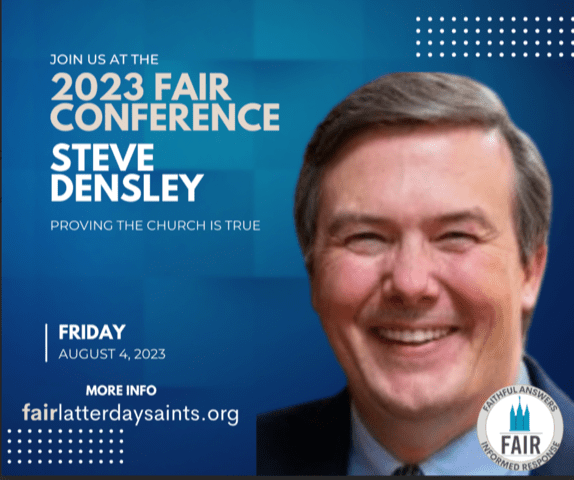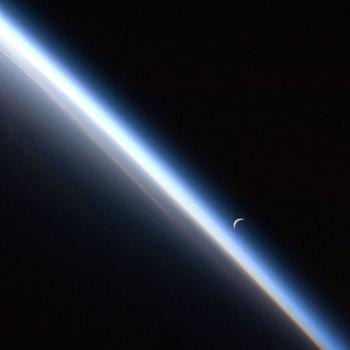
(Wikimedia Commons public domain photograph)
I want to share with you a couple of passages from Brian Miller, “Does Cosmology Support Cosmic Design?” in Ann Gauger, ed., God’s Grandeur: The Catholic Case for Intelligent Design (Manchester, NH: Sophia Institute Press, 2023), 34-46. Brian Miller, who earned a B.S. in physics with a minor in engineering from the Massachusetts Institute of Technology and a Ph.D. in physics from Duke University, is currently the research coordinator for the Center for Science and Culture at the Discovery Institute, in Seattle, Washington.
What physicists mean by fine-tuned can be understood using the illustration of a universe-creating machine. Imagine that scientists created such a device, and that it included several dials that controlled the various details for a new universe, such as the mass of the particles, the strength of the forces, and the initial conditions when it was launched. Numerous dials must be set with extreme precision (fine-tuned) to generate a universe that allows for life’s very existence. Conversely, if only one of the multitude of dials was ever so slightly off, stars and planets might not be able to form, essential elements might not exist, or the chemistry requisite for life might not occur, yielding a universe inhospitable for even the simplest forms of life.Some details require moderate fine-tuning. For instance, the force that causes the attraction between positively and negatively charged particles (protons and electrons) is called the electromagnetic force, and the force that holds protons and neutrons together in a nucleus is called the strong nuclear force. If either force were altered by only a few percent of its current value, stars could not produce sufficient quantities of carbon and oxygen for the universe to support life.Other factors require far more extreme fine-tuning. Protons and neutrons are composed of subatomic particles called quarks, specifically “up” and “down” quarks. If the mass of either type of quark were adjusted by just 1 part in 10^21 of the theoretically possible range, the universe could not produce life-essential elements. The related dials for our hypothetic universe generator would have to be set to a single value out of a billion trillion choices. The required fine-tuning for the strength of gravity is even more extreme to allow for stable stars that could generate life-essential elements and remain sufficiently stable to allow for a hospitable planet.Most stunning of all is the required precision at the start of the universe for the entropy (level of disorder). The fine-tuning associated with the entropy’s unexpectedly low value was estimated by famed physicist Roger Penrose to be 1 part in 10 to the power of 10 to the power of 123. This number could not be written even if a zero were placed on every single atom in the visible universe. If the entropy were substantially larger, the resulting universe would be filled with black holes, making life impossible. (39-40)
A common sense interpretation of the facts suggests that a superintellect has monkeyed with physics, as well as with chemistry and biology, and that there are no blind forces worth speaking about in nature. The numbers one calculates from the facts seem to me so overwhelming as to put this conclusion almost beyond question. (cited at 41)
By the way, one of the very many egregious factual errors in the late Christopher Hitchens’s regrettable 2008 bestseller god is Not Great: How Religion Poisons Everything is his supposition that Sir Fred Hoyle was a religious believer whose famous resistance to Big-Bang cosmology was motivated by his (Hoyle’s) anti-scientific theistic creationism. In reality, Hoyle, who was an outspoken agnostic if not an atheist, proposed his “steady-state theory” of cosmology as an alternative to the Big Bang, which he regarded as too reminiscent of Genesis 1:1. (It was, in fact, Hoyle who invented the term Big Bang, which he meant to be derisive.) Ironically, the concept of the Big Bang originated with the great Father Georges Lemaître, a Belgian priest who held doctorates in both mathematics and theoretical physics.)

(Wikimedia Commons public domain)
“‘Sound of Freedom’ is an unexpected box-office hit. The faith-based film earned a No. 3 spot opening weekend: The unassuming, faith-based film has generated more than $40.2 million at the box office” [This was three or four days ago.]
“Hollywood Confused By New Movie That Depicts Child Sex Trafficking As Bad”
“Journalists Stop By Shelter To Inform Trafficked Children They Are A QAnon Conspiracy”

(Wikimedia Commons public domain photograph)
It turns out that some spaces have opened up on the Interpreter Foundation’s upcoming trip to Turkey, which is one of my very favorite places. So, if you’re at all interested in accompanying me and Interpreter’s executive vice president, Steve Densley, to ancient and medieval Anatolia — and to modern-day Turkey — don’t hesitate. Call now. (And, incidentally, I will make no money from this trip whether you do or not. Some have estimated that I earn in the low seven figures annually from my apologetic activities. And they’re right, so long as it’s remembered that, in order to be accurate, those figures must all be zeros.)

If some of us didn’t take such pleasure in each new example of the depravity inflicted upon the world by theism and theistic believers, the dreary litany of cruelties, injustices, and sorrows to be found in the Christopher Hitchens Memorial “How Religion Poisons Everything” File™ might eventually grow tiresome. As it is, though, each new horror puts a renewed spring in our step and fills us with gloriously fresh indignation. Here are three of them:
- Church Donates Thousands of Eyeglasses in Latin America: Students in El Salvador and older adults in Peru benefit from much-needed visual aids
- Church Helps Ease Suffering Caused by Earthquake in Indonesia: The Church is providing shelter and promoting good hygiene
- Church Supports Vocational Training for Congolese Women“Educate a woman and you educate an entire nation.”
Posted from Victoria, British Columbia













